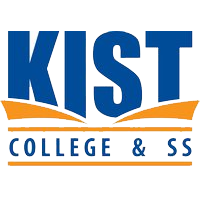Overview
In Nepal's evolving professional sector, there is a growing recognition of the vital role technology plays in addressing environmental challenges. However, traditional academic programs in science, engineering, and management often fall short in providing an interdisciplinary approach to meet the demands of the 21st-century environmental sector. To bridge this gap, the College of Applied Sciences-Nepal (CAS-Nepal) was established in 2005 by a group of dedicated environmental professionals. CAS-Nepal aims to provide high-quality, demand-based education in the environmental sector, equipping students with the necessary knowledge and skills to tackle today's market demands.
Goals
At CAS-Nepal, we understand that your educational journey is driven by specific goals and concerns. We are committed to addressing these needs and providing an exceptional learning experience that is tailored to your requirements. Our key focus areas include:
-
Career Advancements: Our programs are designed to enhance your career prospects and open doors to exciting opportunities in the environmental sector.
-
Time Management: We value your time and offer flexible study options that allow you to balance your education with other commitments.
-
Reputable Credentials: CAS-Nepal is renowned for its credibility, ensuring that the credentials you earn will be highly regarded in the professional world.
-
Information for Today and Tomorrow: We stay updated with the latest advancements in the field, equipping you with relevant and cutting-edge knowledge.
-
Job Opportunities: CAS-Nepal strives to connect graduates with rewarding job placements, enabling them to make a positive impact in their chosen careers.
-
Entrepreneurship: We encourage an entrepreneurial mindset, empowering students to innovate and create their own opportunities in the environmental sector.
Aims and Objectives
CAS-Nepal is driven by a set of clear aims and objectives to fulfill its mission of providing excellence in education and research. Our aims and objectives include:
- Providing affordable, high-quality education to aspiring environmental professionals.
- Equipping students with the skills and knowledge necessary to meet national and international demands in the field of environment.
- Offering a wide range of training programs related to environment and development.
- Conducting research and development initiatives in various environmental areas.
- Producing graduates who are professionally competent and ready to contribute to the development sector.
Affiliation
The B.Sc. and M.Sc. Environmental Science programs offered at CAS-Nepal are affiliated with Tribhuvan University (T.U.), Nepal. The B.Sc. program spans four years, while the M.Sc. program is completed in four semesters. This affiliation ensures that the education you receive at CAS-Nepal meets the highest academic standards and is recognized both nationally and internationally.
At the College of Applied Sciences-Nepal, we are dedicated to empowering environmental professionals through quality education, practical skills, and industry-relevant knowledge.
Facilities at the College of Applied Sciences
The College of Applied Sciences-Nepal (CAS-Nepal) is committed to providing students with a conducive learning environment supported by modern facilities. The following facilities are available to enhance the academic experience and support the educational needs of students:
Laboratories: CAS-Nepal boasts well-equipped laboratories that provide students with hands-on experience and practical training in various scientific disciplines. These state-of-the-art laboratories are designed to facilitate research, experimentation, and data analysis in fields such as environmental chemistry, biology, physics, and geology. Students have access to advanced equipment and instruments, enabling them to develop practical skills and conduct scientific investigations.
Library: The college features a comprehensive library that serves as a valuable resource center for students and faculty. The library houses a diverse collection of books, journals, research papers, and reference materials related to environmental science and related fields. Students can access these resources to deepen their understanding, conduct research, and stay updated with the latest developments in the field. Trained librarians are available to assist students in finding relevant information and utilizing library resources effectively.
Computer and Internet: CAS-Nepal recognizes the importance of technology in education and provides students with computer facilities and high-speed internet access. Computer labs equipped with the latest software and hardware enable students to acquire essential computer skills, conduct data analysis, and engage in computer-based research. The internet connectivity ensures access to online resources, e-journals, and academic databases, expanding students' knowledge and research capabilities.
Audio-Visual: To enhance the learning experience, CAS-Nepal offers audio-visual facilities, including multimedia classrooms and presentation rooms. These facilities are equipped with audio systems, projectors, and interactive whiteboards, creating an engaging and interactive environment for lectures, discussions, and presentations. Audio-visual aids help students visualize complex concepts, improve comprehension, and promote effective communication among peers and faculty.
Cafeteria: The college provides a cafeteria where students can enjoy nutritious meals and refreshments. The cafeteria offers a comfortable space for students to socialize, relax, and recharge during breaks. It ensures that students have access to quality food options, promoting their overall well-being and providing a conducive environment for both academic and personal growth.
CAS-Nepal is dedicated to providing students with top-notch facilities that support their academic pursuits, foster research and practical skills, and contribute to their overall learning experience. These facilities enable students to thrive in their studies and develop the necessary competencies to excel in the field of environmental science.
Training Courses Offered:
Household, Hazardous Wastes, and Related Hazards
- Duration: Variable
- Principal Trainer: Dr. Bhupendra Devkota, Ecotoxicologist
- Course Description: This training course focuses on the management and disposal of household hazardous wastes, emphasizing the potential hazards they pose to the environment and human health. Dr. Bhupendra Devkota, an expert in ecotoxicology, provides comprehensive training on safe handling and proper disposal methods.
Proposal Writing Training for M.Sc. Environmental Science Students
- Duration: 1 week
- Principal Trainer: Dr. Donal A. Messerschmidt, Anthropologist/Trainer
- Course Description: This intensive training program aims to enhance the proposal writing skills of M.Sc. Environmental Science students. Dr. Donal A. Messerschmidt, an experienced anthropologist and trainer, guides students through the process of crafting effective proposals for environmental research and project funding.
Chemical Management Training for M.Sc. and B.Sc. Students
- Duration: 1 week
- Principal Trainer: Dr. Bhupendra Devkota
- Course Description: This training course provides comprehensive knowledge of chemical management, focusing on the safe handling, storage, and disposal of chemicals in various environmental settings. Dr. Bhupendra Devkota, an expert in the field, equips students with the necessary skills to manage chemical substances responsibly.
Conflict Management Training for M.Sc. Environmental Science Students
- Duration: 1 week
- Principal Trainer: Mr. Salil Devkota, Environment/Social/Conflict Resolution Expert
- Course Description: Conflict management is crucial in the environmental sector, where diverse stakeholders often have conflicting interests. Mr. Salil Devkota, an expert in environmental and social conflict resolution, trains M.Sc. Environmental Science students in effective conflict management strategies to facilitate sustainable decision-making processes.
Environmental Impact Assessment Training
- Duration: 5 weeks
- Principal Trainers: Dr. Bhupendra Devkota and Er. Salil Devkota
- Course Description: This comprehensive training program focuses on environmental impact assessment (EIA) techniques and procedures. Dr. Bhupendra Devkota, along with Er. Salil Devkota, guides participants through the process of evaluating and mitigating environmental impacts in compliance with Nepal's Environmental Protection Act. The training duration is five weeks.
GIS Training for M.Sc. Environmental Science Students
- Duration: 2 weeks
- Principal Trainer: Mr. Tanka Dahal, GIS and Remote Sensing Expert
- Course Description: Geographical Information System (GIS) skills are essential for professionals in the environmental field. This two-week training program led by Mr. Tanka Dahal, an expert in GIS and remote sensing, equips M.Sc. Environmental Science students with practical knowledge and techniques for spatial analysis and data management.
Internship Opportunities
CAS students have the opportunity to engage in internships with various ministries, organizations, NGOs, and INGOs. Some notable institutions where students have participated in internships include MOSTE, MOAD, ICIMOD, SWMTC, NESS, TEC, WCN. Moreover, students have also received thesis grants from organizations like WWF, CREEW, MOFSC, MOSTE, NESS, WINROCK, PPUE/UNDP, AEPC, among others. These internships provide valuable hands-on experience and networking opportunities for students, enabling them to apply their knowledge in real-world settings and contribute to environmental initiatives.
Courses Offered:
MSc in Environmental Science
The Master of Science (MSc) program in Environmental Science, offered by the College of Applied Sciences-Nepal in affiliation with Tribhuvan University (TU), is a comprehensive postgraduate program designed to equip students with advanced knowledge and skills in the field of environmental science. This program aims to produce highly competent environmental professionals who can address the complex environmental challenges of the 21st century.
Course Highlights:
- Environmental Chemistry
- Environmental Biology
- Environmental Physics
- Environmental Geology
- Environmental Pollution and Control
- Environmental Impact Assessment
- Climate Change and Adaptation
- Natural Resource Management
- Environmental Policy and Governance
- Research Methodology in Environmental Science
The MSc program in Environmental Science is a four-semester course that combines theoretical knowledge with practical training and research. The curriculum is designed to provide students with a strong foundation in environmental science principles and techniques, enabling them to analyze, evaluate, and propose sustainable solutions to environmental problems.
BSc in Environmental Science
The Bachelor of Science (BSc) program in Environmental Science, affiliated with Tribhuvan University (TU), is a comprehensive undergraduate program offered by the College of Applied Sciences-Nepal. This program is designed to provide students with a broad understanding of environmental science and its applications.
Course Highlights:
- Introduction to Environmental Science
- Environmental Chemistry
- Environmental Biology
- Environmental Physics
- Environmental Geology
- Environmental Pollution and Control
- Environmental Monitoring and Analysis
- Natural Resource Management
- Environmental Policy and Law
- Environmental Impact Assessment
The BSc program in Environmental Science is a four-year course that combines foundational knowledge with practical skills. Students will develop a strong understanding of environmental issues, learn to assess environmental impacts, and gain practical experience in addressing environmental challenges through fieldwork and laboratory work.
Both the MSc and BSc programs in Environmental Science offered by the College of Applied Sciences-Nepal provide students with a strong academic foundation and practical skills to pursue careers in environmental research, environmental management, environmental consultancy, and other related fields. The programs emphasize interdisciplinary approaches and equip students with the necessary knowledge and tools to contribute to sustainable environmental practices and policies.
Contact College of Applied Sciences's administrative office for detailed information on the course, admissions, location, fees, scholarships, facilities, counseling, or eligibility.















